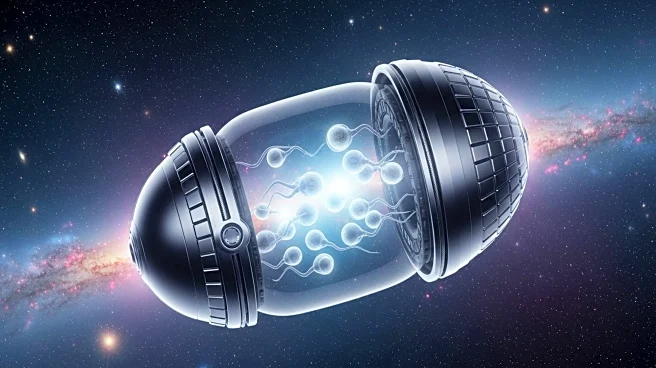What is the story about?
What's Happening?
A study conducted by researchers from Kyoto University in Japan suggests that spaceflight may not hinder sperm production. Spermatogonial stem cells from mice were cryopreserved and sent to the International Space Station for six months. Upon return to Earth, these cells were injected into mice testes, resulting in healthy offspring with normal gene expression. The study indicates that spaceflight does not affect the viability of germ cells, highlighting potential options for human reproduction in space. However, challenges remain, as embryonic cells may be sensitive to spaceflight conditions.
Why It's Important?
The findings of this study are significant for the future of human space exploration and potential colonization beyond Earth. Understanding the impact of spaceflight on reproductive health is crucial for long-term missions and the possibility of sustaining human life in space. The study provides insights into germ cell preservation techniques, which could be vital for safe reproduction in space environments. As space agencies plan for extended missions, addressing reproductive health challenges will be essential for ensuring the well-being of astronauts and future space inhabitants.
What's Next?
Further research is needed to explore the effects of spaceflight on human reproductive health, particularly regarding embryonic development and female reproductive systems. Scientists may investigate additional preservation techniques and conduct more studies on different aspects of reproduction in space. Collaboration between space agencies and research institutions could accelerate advancements in this field, paving the way for safe and sustainable human reproduction beyond Earth.
















